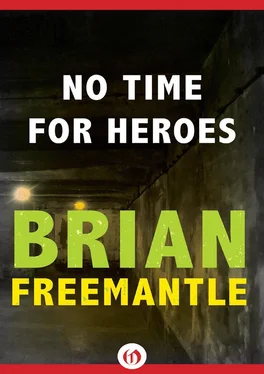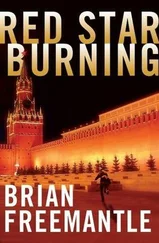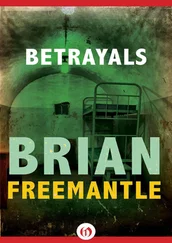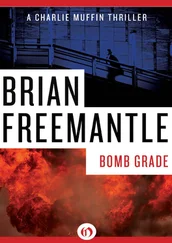Brian Freemantle - No Time for Heroes
Здесь есть возможность читать онлайн «Brian Freemantle - No Time for Heroes» весь текст электронной книги совершенно бесплатно (целиком полную версию без сокращений). В некоторых случаях можно слушать аудио, скачать через торрент в формате fb2 и присутствует краткое содержание. Жанр: Триллер, на английском языке. Описание произведения, (предисловие) а так же отзывы посетителей доступны на портале библиотеки ЛибКат.
- Название:No Time for Heroes
- Автор:
- Жанр:
- Год:неизвестен
- ISBN:нет данных
- Рейтинг книги:5 / 5. Голосов: 1
-
Избранное:Добавить в избранное
- Отзывы:
-
Ваша оценка:
- 100
- 1
- 2
- 3
- 4
- 5
No Time for Heroes: краткое содержание, описание и аннотация
Предлагаем к чтению аннотацию, описание, краткое содержание или предисловие (зависит от того, что написал сам автор книги «No Time for Heroes»). Если вы не нашли необходимую информацию о книге — напишите в комментариях, мы постараемся отыскать её.
No Time for Heroes — читать онлайн бесплатно полную книгу (весь текст) целиком
Ниже представлен текст книги, разбитый по страницам. Система сохранения места последней прочитанной страницы, позволяет с удобством читать онлайн бесплатно книгу «No Time for Heroes», без необходимости каждый раз заново искать на чём Вы остановились. Поставьте закладку, и сможете в любой момент перейти на страницу, на которой закончили чтение.
Интервал:
Закладка:
Melega, Cowley and Danilov and the other two Americans were already in Palermo airport even before the Rome departure, flown in by one of the helicopters. Thirty additional Carabinieri had also been airlifted in: the rest of the hurriedly mobilised squad were crossing to the island by naval patrol boats, bringing a variety of unmarked cars all fitted with Sicilian, not Roman, registrations.
‘Here we go!’ sighed Cowley, watching the passengers file off the internal flight. In a brief moment of professional satisfaction he forgot his personal destruction was moving inexorably closer. He soon remembered.
CHAPTER FORTY-SIX
It was not until the two Russians eventually collected their much transferred luggage that the watching policemen realised there was a third, clearly an underling from the way the cases were casually handed to him to carry. In the delay of disembarkation Melega had already collected the passenger list: the obvious third name was Boris Amasov. The Italian was embarrassed the identification had not been made earlier, from the Alitalia arrival in Rome: everyone else in the group felt it should have already been realised, too, but there was no spoken comment.
It was difficult for Danilov to defer to the authority of Colonel Melega, although he knew the Italian had to command an Italian operation, with the rest of them allowed as little more than observers: he suspected the Americans were nervous, too, of their complete dependency. Melega flurried about in constant movement and conversation, juggling – sometimes literally – between landlines and mobile telephones and various subordinate commanders ensuring the surveillance remained absolute, but the rest of the group fell virtually silent, speaking only to make necessary contributions: neither Smith nor Patton attempted the wise-cracking cynicism Danilov had come to regard as endemic among American law enforcement officers.
They didn’t form part of the motorised observation: Melega maintained contact from their radio car. When the Italian announced the Russians had booked into the President Hotel, on the via Francesco Crispi, Cowley snorted a laugh and said: ‘I don’t believe it!’
‘What?’ demanded Danilov.
‘The American capo di tutti capi, Lucky Luciano, always stayed at that hotel when he came to Sicily, after being deported to Italy from America after the war. He re-formed from there the Mafia that Mussolini had crushed!’
‘They’re treating it like a pilgrimage!’ declared Danilov, more interested in practicality than history.
‘And re-forming the Mafia into something even bigger,’ said Cowley.
‘Much bigger,’ announced Melega, two hours later. By then they had booked into the Politeama Palace on the Piazza Ruggero Settimo, further back from the seafront than the Mafia hotel, in which Melega had installed four officers purporting to be tourists. Melega made the declaration the moment he returned from a contact meeting with them.
‘What?’ demanded Patton.
Melega, enjoying centre stage, read unnecessarily from a slip of paper. ‘John Vincent Palma. Born April, 1943. Given address Waterbury, Connecticut.’
‘Go on,’ encouraged Cowley.
‘He booked into the President Hotel three days ago,’ said Melega. ‘Reservation is for four more nights. Tonight he had dinner with Maksim Zimin, Ivan Zavorin and Boris Amasov: pasta, with veal to follow. With four flasks of Chianti. At this moment they’re toasting each other in grappa.’
His voice distant, Patton mused: ‘The rumour from Catania was that it was to be an American-Sicilian meeting.’
‘Now Russia completes the chain…’ said Danilov.
‘… to create the world-spanning connection we all hoped and pretended wasn’t going to happen,’ concluded Cowley. To Barclay Smith he said: ‘I don’t want any leaks now, with open-line telephone calls between here and Rome. Take one of the helicopters back to Rome. Now. I want the name of John Vincent Palma run through every record ever kept in America since the Puritans waded ashore and got met by the Indians. Photographs wired, if they’re available. Let’s cross-check the name against the Russian ones we have, as well. By tomorrow morning I want to know more about John Vincent Palma than he knows about himself.’
Which was virtually what they got, and at breakfast time, from the unshaven, red-eyed but uncomplaining FBI agent. John Vincent Palma was listed in the FBI criminal computer as a known capo in the New York Genovese Family. There was a failure to convict on a manslaughter charge in 1972; in 1975 an extortion conviction drew a three-year penitentiary sentence. There was another unproven charge of transporting a girl across a State line for the purposes of prostitution. He was married, with two children, lived in Waterbury, as listed on the hotel registration form, and was a respected benefactor of the local Catholic church. None of the Russian names had ever been linked with him. The three wired photographs showed a heavy – although not plump – smooth-faced man, jaw tight in two of them to support the cigar jutting from the corner of his mouth.
‘We’ve got a time frame in which to work,’ reminded Cowley. Talma’s booked for a further three nights, from now. Makes him due out Saturday. Sure, he can extend, but they must be working to some sort of schedule.’
Which they clearly were.
That morning, Palma left the hotel alone and strolled without apparent direction or hurry around the curve of the inner harbour, towards the main thoroughfare of the city. At the Corso Vittorio Emmanuele he took two espressos at the pavement table of a cafe before disappearing inside to use the wall-mounted telephone: the surveillance squad were certain of two separate calls, but there might have been a third. The man took another coffee further along the Corso, after which he set off towards the centre of the town before turning on to narrower streets. At the via Candelai he went into a restaurant to which the three Russians had already been followed, by an independent team of watchers: both teams were at once replaced. Two men from the second group went inside to eat and arrived in time to witness Palma shake hands with Zimin and all four men touch glasses in what was clearly another celebration toast. They managed three more obvious toasts working their way through three bottles of Verdicchio dei Castelli di Jesi: the pedestrian-minded Amasov ate veal again, but the others divided between lamb and liver.
They separated after lunch. Zimin and Zavorin practically retraced the route of the American that morning, lingering on the waterfront and appearing to read the harbour notices.
Amasov went with Palma to a car-hire facility off the via Roma, where they rented the largest Fiat model available. Palma put down an American Express card for security but paid in advance for four days’ hire in cash. Five of the undercover police cars brought in on the overnight ferry had matching engine capacity, but all were supercharged.
That night the four ate at a seafood restaurant on the harbour edge. Amasov left most of his fish stew.
At the conference to review the day’s developments, Cowley pointed out the duration of the car hire supported his time-frame suggestion. Patton added the fact that they had hired a car at all meant they intended travelling out of town, and guessed Amasov to be the intended driver. There was general agreement the meandering walks around the city were more to kill time than evade any possible surveillance, although Palma’s call from a public, untraceable telephone was an obvious precaution.
‘Force of habit more than suspicion,’ judged Patton. ‘These guys think they’re as free as the wind.’
The number of the hire car was circulated to all motorised units in the special squad, but withheld from general distribution to island forces.
Читать дальшеИнтервал:
Закладка:
Похожие книги на «No Time for Heroes»
Представляем Вашему вниманию похожие книги на «No Time for Heroes» списком для выбора. Мы отобрали схожую по названию и смыслу литературу в надежде предоставить читателям больше вариантов отыскать новые, интересные, ещё непрочитанные произведения.
Обсуждение, отзывы о книге «No Time for Heroes» и просто собственные мнения читателей. Оставьте ваши комментарии, напишите, что Вы думаете о произведении, его смысле или главных героях. Укажите что конкретно понравилось, а что нет, и почему Вы так считаете.












